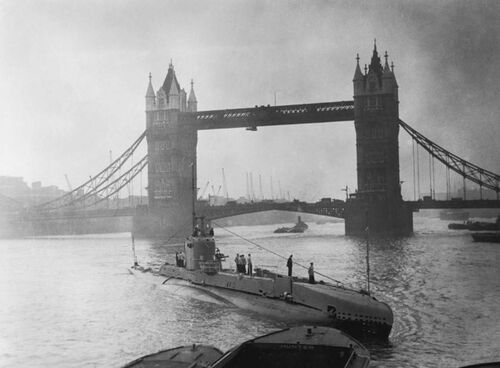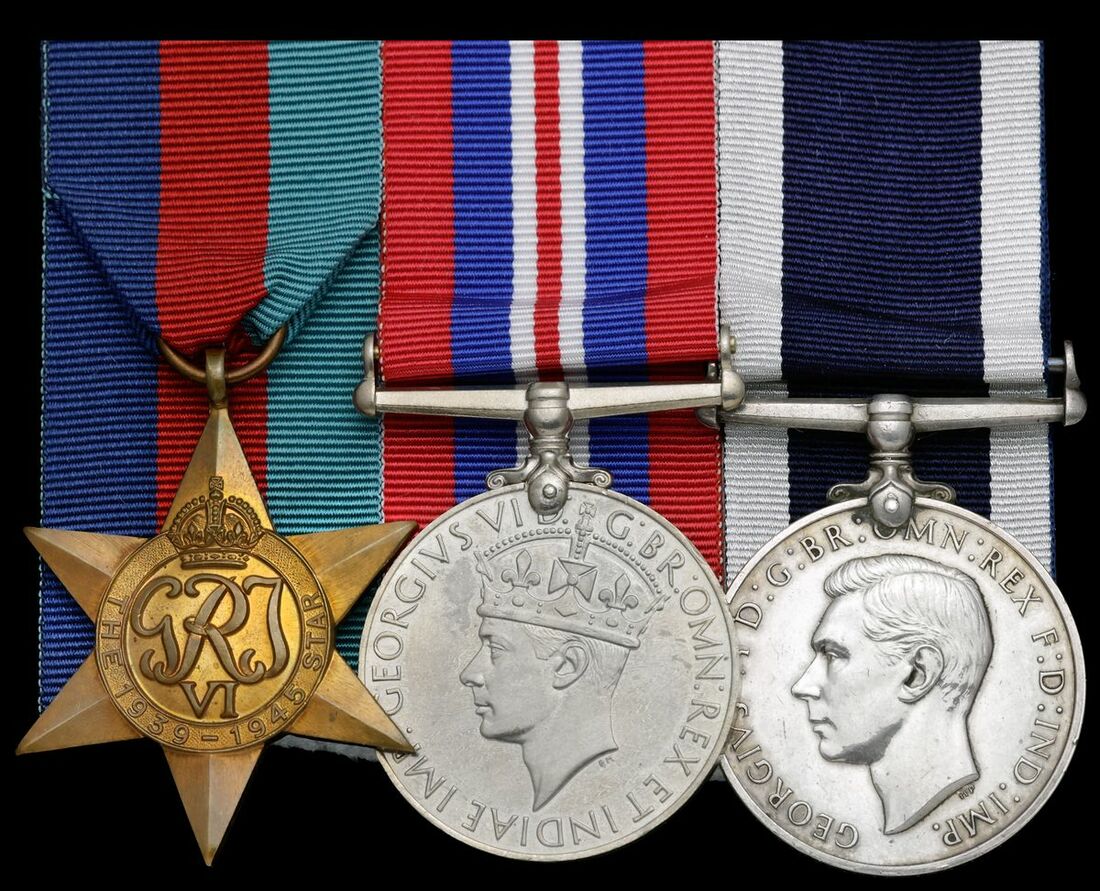Auction: 23111 - Orders, Decorations and Medals - e-Auction
Lot: 826
(x) Three: Leading Seaman, A. J. A. M. Smith, Royal Navy, who was taken prisoner-of-war after the tragic sinking of the submarine Starfish
1939-45 Star; War Medal 1939-45; Royal Naval L.S. & G.C., G.VI.R. (J.114338 A. J. A. M. Smith. L.S. H.M.S. Dolphin.), minor contact marks, very fine (3)
Archibald John Alexander Melrose Smith was born at Portsmouth, Hampshire on 20 February 1910 and enlisted into the Royal Navy on 30 June 1925 as Boy Class II. Notably he did this by special permission, being initially listed as medically unfit for service perhaps due to his diminutive stature - standing as he did at only 4' 11'. Seeing service on a number of vessels, Smith reached maturity aboard the battleship Nelson and was appointed Ordinary Seaman on 20 February 1928.
Further service saw him promoted Able Seaman aboard the destroyer Vendetta on 14 December 1929. Smith was posted to the anti-submarine school H.M.S. Osprey on 13 March 1933 and from there it was not long before he volunteered for service with submarines on 17 September 1935, while at the torpedo school Vernon. After a turn at the submarine school Dolphin he was given his first posting on subs, Osiris N67 on 25 March 1936: an O-class submarine which had been serving with the 4th Submarine Flotilla. Later transferring to the Parthian-class Porteous N29 on 1 April 1937. Just prior to the outbreak of the war Smith received the fateful posting aboard Starfish S19, an S-class submarine with the 2nd Submarine Flotilla in Scotland.
She was at sea when the war began, returning to Dundee late on 3 September, making her first war patrol extremely uneventful. Nevertheless she soon began to patrol in earnest, around the North Sea and notably in the vicinity of Dogger Bank and Heligoland Bight. It was during these patrols that Smith received his promotion to Able Seaman, on 7 September 1939. Leaving Blyth for a patrol of Heligoland Bight on 6 January 1940 Starfish spotted the German minesweeper M-7 three days into her voyage.
Immediately lining up for an attack, a drill error prevented the torpedoes from launching. Her commander - Lieutenant Turner - broke off the attack and lined up for a second run, however the diving planes jammed, forcing the sub to dive until repairs could be effected. Two depth charges were dropped to no effect - but when a crewman was granted permission to restart a motor - in order to prevent a gyro from wandering - this changed. Almost immediately four depth charges were dropped in a tight spread over Starfish, causing serious damage.
An uncertain wait followed until around two hours later a massive attack was launched with twenty depth charges landing accurately around the submarine. Massive flooding forced her to the surface although the flooding meant that she rose at a steep 45 degree angle. Unable to offer any resistance the crew surrendered and were taken off, with Starfish sinking soon afterwards. An attempt was later made to recover documents from the wreck (in July 1940) but this was unsuccessful.
The prisoners were taken to Stalag XI-A where they were to be housed for the rest of the war. A number of newspaper articles make clear that the British believed the loss of the crew to be total and it was not until letters began to arrive home that friends and family learned of the survival of their loved ones. As the war came to an end the camp found itself in the path of the Soviet advance and Allied fears mounted about the security of the survivors. In one of the last airborne operations in the European Theatre - codenamed Violet III - an eighteen-man team under Major Worrall were dropped in to ensure the safe evacuation of Allied troops. This was achieved, although a stand-off did occur with the Soviets over the attempt to remove Italian and Polish prisoners as well.
Smith was repatriated and returned to service on 1 April 1947 with the rank of Petty Officer. He served ashore for the next three years until finally joining the Reserve on 19 March 1950; sold together with copied research including service papers; medal and P.O.W. rolls as well as copied newspaper clippings and a typed summary.
Subject to 5% tax on Hammer Price in addition to 20% VAT on Buyer’s Premium.
Sold for
£240
Starting price
£100







